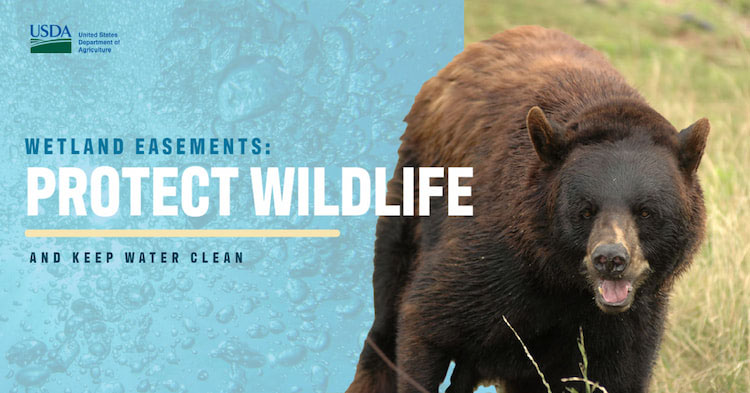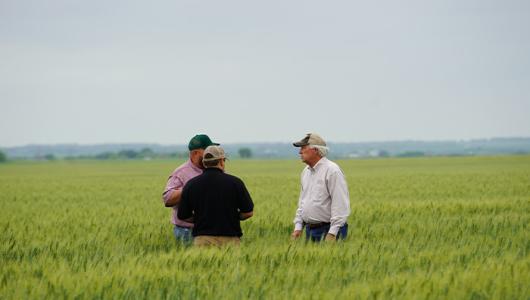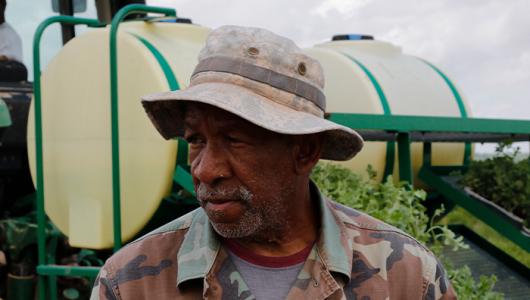NRCS has reached an impressive new milestone: enough acres in easements to fill the state of New Jersey. The 5 million acres have been enrolled across all the conservation easement programs offered by NRCS over the past 28 years.
Farmers, ranchers, and private landowners who enroll their acres in conservation easements ensure protection of sensitive lands and support wildlife.
Currently, NRCS offers conservation easements through the Agricultural Conservation Easement Program (ACEP), which helps landowners, land trusts, and other entities protect, restore, and enhance wetlands, grasslands, and working farms and ranches through conservation easements.
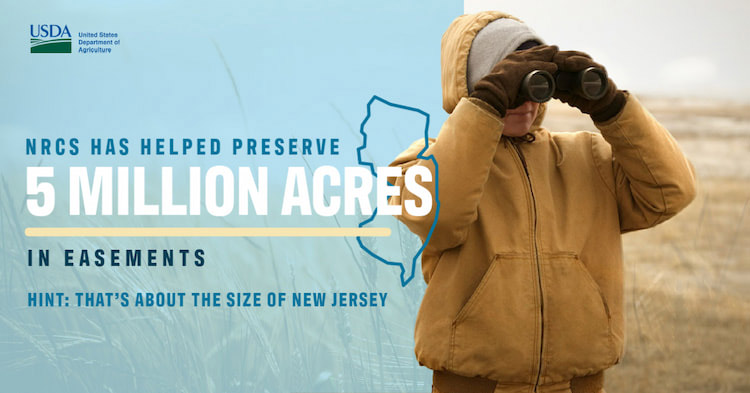
By the Numbers
- 5 Million acres enrolled in conservation easements
- 2.8 Million acres in wetland easements
- 1.9 million acres in agricultural easements, including grassland easements
- 110,000 acres enrolled in FY 2021
- 28 years of conservation easements.
Wetlands
- Filtering sediments and chemicals
- Reducing flooding
- Recharging groundwater
- Protecting biological diversity
- Providing opportunities for educational, scientific, and limited recreational activities.
Wetland easements are also crucial to wildlife like
- The Louisiana black bear - wetlands easements have been credited for their recovery in 2019
- The Oregon chub - wetlands easements have been credited for their recovery in 2015
- Whooping cranes - which rely on wetland easements on their cross-country treks and for raising young
- Sage grouse and other wildlife, which depend on the wet meadows of sagebrush country
Agricultural Lands
Agricultural land easements protect the long-term viability of the nation’s food supply by preventing conversion of productive working lands to non-agricultural uses. These easements have been crucial to protecting rangelands and farmsteads from urban encroachment, ensuring the most productive lands remain working lands.
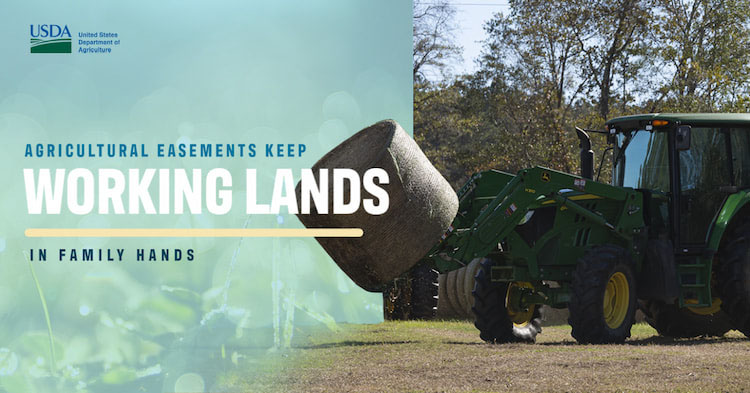
Easements also can be used to protect floodplains, grasslands, and forests, providing public benefits including:
- Carbon sequestration
- Water quality
- Historic preservation
- Wildlife habitat
- Protection of open space
Easements have contributed to the restoration of the Southeast’s unique, but rare longleaf pine forests, and to the protection of animals like the Greater Sage-Grouse.
Enrolling in Easements
Farmers, ranchers, and private foresters looking to enroll farmland, grasslands, or wetlands in a conservation easement may submit proposals to the NRCS state office to acquire conservation easements on eligible land. To enroll land through wetland reserve easements, landowners should contact their local USDA Service Center.
USDA offers a variety of conservation programs that provide help to plan and implement conservation practices on farms, ranches or forests. Learn more about putting conservation to work through our Conservation at Work video series.
Ashley Miller is a Public Affairs Specialist with USDA in Washington, DC.

